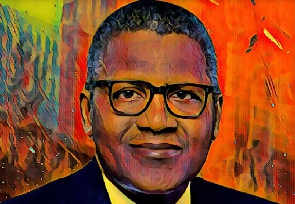 Aliko Dangote is Africa's wealthiest man
Aliko Dangote is Africa's wealthiest man
In the face of a challenging 2022, the number of Africa’s billionaires saw a modest increase despite a collective wealth decline of $3.1 billion over the past 12 months.
The rise in African billionaires from 18 to 19 can be credited to the return of South African billionaire Christo Wiese to the list. He was absent from the rankings in 2018 due to an accounting scandal at Steinhoff, which resulted in financial difficulties for the company.
According to Forbes’ latest billionaire list, the collective wealth of African billionaires experienced a decline of four percent, amounting to a loss of $3.1 billion.
The drop, from $84.9 billion in 2022 to $81.5 billion, surpasses the GDP of 10 African countries, including the Gambia, Guinea-Bissau, Seychelles, and South Sudan.
The decrease follows a significant 15-percent increase in the previous year, due to a surge in stock prices throughout the continent.
Despite a challenging year in 2022, some of Africa’s tycoons managed to recoup their wealth losses through a late-year rally.
The fortunes of these billionaires closely mirrored the fluctuation of the S&P All Africa index, which saw a drop of over 20 percent in the first nine months of 2022, but by January 2023, the index had only declined by three percent.
Aliko Dangote, who retained his position as Africa’s richest person for the 12th year in a row with a net worth of $13.5 billion (Bloomberg values his wealth at $19 billion), saw his wealth decline by $400 million in 2022.
South African billionaire Johann Rupert, the second-richest billionaire on the continent, saw his net worth decline by $300 million to $10.7 billion (Bloomberg values his wealth at $12.3 billion).
It’s worth noting that the list only features billionaires from seven of Africa’s 54 countries, excluding tycoons such as Sudanese-born Mo Ibrahim, South African Nathan Kirsh, Egyptian Mohamed Al-Fayed, Ethiopian billionaire Mohammed Al-Amoudi, and Nigerian tech entrepreneur Tope Amusan, all of whom are now citizens or residents of other countries.
African billionaires, despite facing a decline in wealth, continue to symbolize the continent’s economic growth. The rise in their numbers and a modest drop in wealth illustrate resilience and adaptability in the face of economic obstacles.
However, the limited representation of tycoons from other countries highlights the unequal distribution of wealth and economic opportunities within Africa.